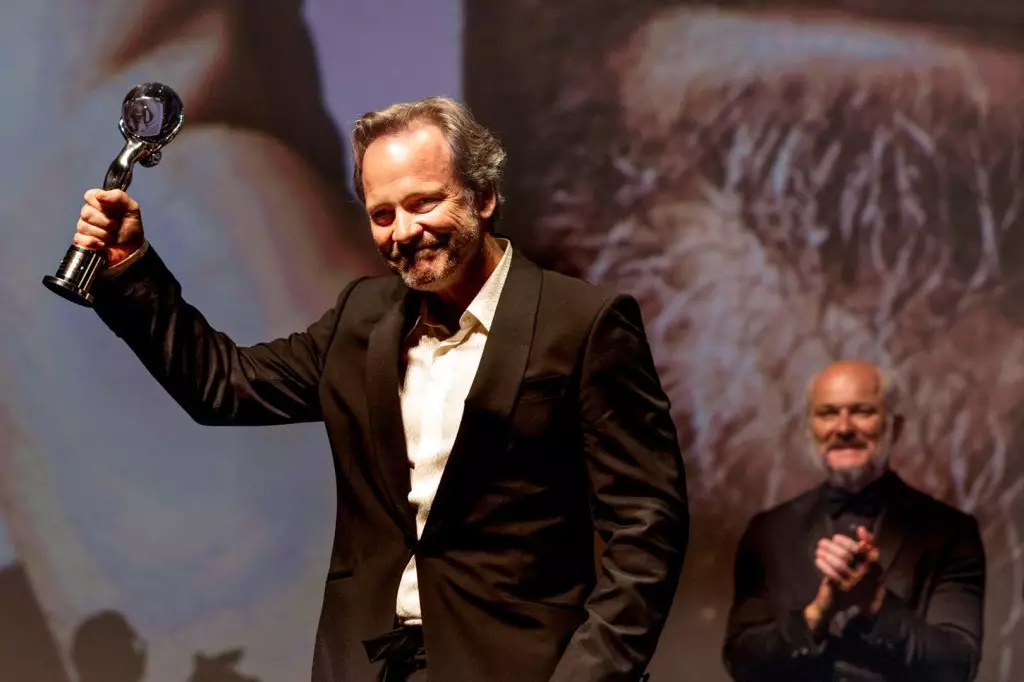The recent passing of Jiří Bartoška marks the end of an era for Czech cinema and the global film community alike. His lifelong dedication to the arts transcended mere performances, shaping the cultural fabric of not only Czech Republic but also serving as a beacon of artistic resilience on the international stage. As president of the Karlovy Vary International Film Festival for nearly three decades, Bartoška’s influence was monumental, fostering a nurturing environment where cinema could flourish beyond political and social upheavals. His legacy underscores the vital importance of remembrance, not just as a tribute but as a catalyst for ongoing cultural dialogue. The festival’s decision to honor his memory with a film and a consistent presence in its trailers demonstrates an understanding that true artistry endures, inspiring future generations to see beyond fleeting trends and recognize the profound power of storytelling as a tool for unity and healing.
The Festival’s Gentle Approach and Its Significance
What stands out in this year’s Karlovy Vary celebration is its nuanced treatment of Bartoška’s legacy. Unlike other festivals that might drown in jingoism or overt hero worship, this event adopts a more understated reverence. The decision to feature Bartoška prominently in their promotional material, especially in a trailer where a beloved local star offers a poignant toast to the memory of his friend, speaks volumes about their respect for authentic memory. It hints at an understanding that true honor in the arts is best reflected through subtlety, humility, and continuous remembrance rather than ostentatious accolades. This approach fosters a sense of community and collective mourning that is both genuine and thought-provoking. The festival chainingly promotes an anti-pretentious atmosphere—where even special awards and trailers maintain a playful, irreverent tone, exemplified by the tradition of trashing their own prestigious Crystal Globe accolade, revealing a festival that values character, history, and the communal spirit over superficial grandeur.
Art as Reflection and Resistance
The festival’s dynamic performances, including interpretative dance routines enveloped in mystical symbolism, serve as a powerful reminder that art is fundamentally a mirror of our societal state. This year’s Lynchian-themed performance—featuring mysterious, androgynous figures cloaked in black, illuminated by stark white light—can be read as a visceral commentary on the chaos, ambiguity, and disillusionment prevalent in modern society. Such performances encapsulate the idea that art, in its essence, does not only entertain but also challenges, questions, and resists. They highlight a crucial role of festivals like Karlovy Vary: to be a space where interpretation is open-ended, where art critiques, comforts, and unites in the face of uncertainty. This echoes the timeless truth that creativity is an act of defiance against despair and fragmentation, reaffirming that cultural expression remains a potent form of resilience.
The Power of Cinema to Cross Boundaries and Heal Divisions
The festival’s laureates exemplify how cinema can foster empathy across borders and ideological divides. Vicky Krieps’s heartfelt acknowledgment of the universality of films underscores this belief. Her candid reflection on her authenticity and her critique of the notions of “coolness” resonate deeply: cinema’s true strength lies in its capacity to serve as an inclusive space—a platform where one’s voice matter, regardless of background or status. Her passionate appeal for the preservation of movies as carriers of love, peace, and forgiveness emphasizes that in a world rife with conflict and division, storytelling remains our most effective tool for understanding and healing. Krieps’s words cut through superficial values, reminding us that films are precious because they allow us to dream and empathize beyond superficial barriers imposed by geography, class, or ideology.
Similarly, Peter Sarsgaard’s speech underscores this unity-building potential by emphasizing collective effort. His assertion that cinema and art flourish through support, collaboration, and community is a resounding call for solidarity amid rising political fragmentation. Sarsgaard’s reference to the current global retreat into factions highlights a crucial truth: when humanity faces common enemies—be they war, hatred, or injustice—our strength resides in collective action rather than individual isolation. His invocation of Václav Havel’s words reframes political division as an artistic and moral challenge, urging us to prioritize human connection above ideological separations.
The Cultural Imperative to Foster Collective Generation
In today’s polarized climate, Sarsgaard’s stance reminds us that art and cinema are inherently revolutionary forces—not merely entertainment but instruments of societal cohesion. The message is clear: cultural hubs like Karlovy Vary serve as beacon lights challenging the destructive tendencies of fragmentation. They exemplify a vital cultural imperative: to create spaces where shared dreams, memories, and aspirations converge. Such festivals are not just showcases of artistry; they are acts of defiance against despair and division, demonstrating that in collective effort, there exists hope for a unified future. These moments of homage, reflection, and dialogue reaffirm the idea that art’s true power lies in its capacity to heal wounds, bridge divides, and inspire ongoing resilience against societal fractures.
This year’s festival, by honoring both the legacies of remarkable artists and making bold social statements, proves that cinema remains an indomitable force—capable of inspiring unity, fostering empathy, and defending the enduring values of love, peace, and collective human progress in a fractured world.

